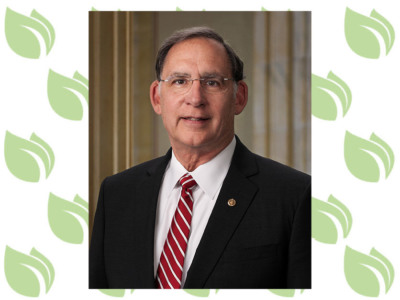Much of the coverage surrounding the Sri Lankan crisis explains the fall of President Gotabaya Rajapaksa’s government in terms of runaway inflation, rolling blackouts and a debt default that created a financial catastrophe in a nation that had achieved upper-middle-income status just a few short years ago.
While each of these events played a significant role in Sri Lanka’s collapse, there’s also an angle that has been largely overlooked in Western media reports. Rajapaksa’s dramatic fall from grace is an allegory for leaders who fail to understand modern agricultural production.
In 2019, Rajapaksa pledged to transform the nation’s agricultural production to organic over the next decade. Within two years of that promise, he issued an ill-advised ban on the importation and use of synthetic fertilizers and conventional pesticides. It didn’t take long for Sri Lanka’s two million farmers to feel the economic hurt or for the nation’s population to face massive food shortages.
Prior to this dramatic policy change, Sri Lanka was self-sufficient for most dietary staples. But when a third of your farmable land goes fallow, food prices soar. Rationing and a hunger crisis will follow.
It would stand to reason that this policy decision would lead to a dramatic reduction in crop yields and health. Yet, Rajapaksa failed to see this outcome until throngs of angry Sri Lankans overtook his residency. It is a reminder that the old maxim “where there is hunger, there is conflict” remains as true as ever.
According to the Food and Agriculture Organization of the United Nations, 828 million people around the globe are affected by hunger. The report noted that after remaining relatively unchanged since 2015, the number began to grow in 2020. The increase, fueled in part by the pandemic, is now being turbocharged by record high food costs and major market disruptions brought on by Russia’s invasion of Ukraine.
Russia and Ukraine are major grain exporters to regions of the world most at-risk for food insecurity-driven conflict. Half of Africa’s wheat imports come from these two nations. Countries across North Africa and the Middle East are crippled by droughts, and as major importers of Ukrainian and Russian agriculture products, these same nations have been dealt another blow by dwindling exports from Black Sea ports. The economic conditions in these parts of the world are already grim. Inaction could very well lead to Arab Spring 2.0.
Russia is also the world’s top fertilizer exporter, which brings us back to the fatal flaw of Rajapaksa’s organics-only policy. As Rajapaksa quickly found out, feeding a nation, much less the world, without the use of synthetic fertilizer is simply not feasible. Nations that haven’t taken a drastic Sri Lankan approach are learning this reality as the world faces record-high fertilizer prices that have put crop yields at risk.
What stands out about Sri Lanka’s plight is that it was largely brought about by its own leadership’s shortsighted decisions. I know you’re thinking, that could never happen in America. Let me tell you, it absolutely can if we continue to shy away from science being the cornerstone of our regulatory structure.
While President Biden hasn’t proposed anything as dramatic as Rajapaksa’s organic-only policy, his team has pursued numerous initiatives that can have harmful impacts on our ability to continue to produce the world’s safest, most abundant, and most affordable food supply.
Under the Biden administration’s direction, the Environmental Protection Agency has repeatedly threatened to take vital crop protection tools away from farmers. Since he came into office, the president has sought to take working land off the market by pushing unrealistic conservation goals. His moratorium on domestic gas leases has directly contributed to higher fuel costs which, in turn, have driven prices at the supermarket to new highs as fuel is a necessity to plant and transport agricultural commodities. In fact, on Biden’s watch, food inflation is at its highest since President Carter was in office.
There are many lessons to learn from Sri Lanka’s catastrophe. Let’s not ignore the obvious one. Policies that fail to take into consideration crop health and yields should be off the table. The world is verging on a food crisis of unseen magnitude. Policy makers should be helping our farmers address this, rather than adding fuel to the fire.
U.S. Senator John Boozman, R-Ark., ranking member of the U.S. Senate Committee on Agriculture, Nutrition, and Forestry and co-chair of the Senate Hunger Caucus.
For more ag news or opinions, visit www.Agri-Pulse.com.


